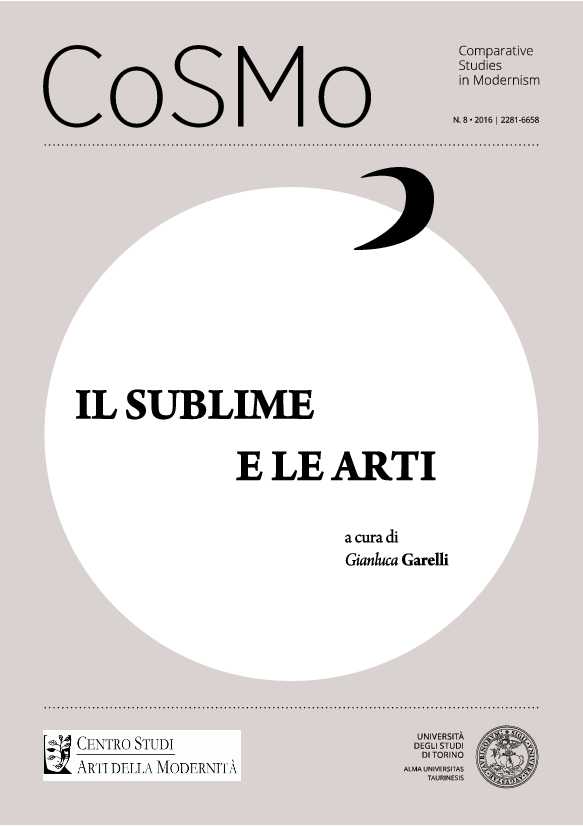Una sublime irritazione. Thomas Bernhard e il problema della rappresentazione
Parole chiave:
Sublime, Sprachskepsis, Representation, Failure, Mimesis, Style, Thomas Bernhard, Ludwig Wittgenstein.
Abstract
The article focuses on a particular conception of the idea of «sublime», concerning the tension between absolute objects and their empirical representation. A brief historical resume shows that, since Longino’s Perì Hýpsous, «sublime» has always been connected with a problematization of the role of language. An analogue idea seems to be fundamental in the Austrian tradition of Sprachskepsis (in the beginning of the XX Century) and, above all, in the works of Thomas Bernhard. This author’s goal is somehow paradoxical: while adopting the form of artistic representation, Bernhard aims to show the failure of representation. In his works, he approaches this problem through two different strategies. From one side, he directly talks about the ineffectiveness of mimetic representation. But at the same time, he manages to create a peculiar, personal narrative style: aiming to show this same message indirectly, as a sort of “collateral effect”.Downloads
I dati di download non sono ancora disponibili
Pubblicato
2016-06-16
Fascicolo
Sezione
Focus
Gli autori mantengono i diritti sulla loro opera e cedono alla rivista il diritto di prima pubblicazione dell'opera, contemporaneamente licenziata sotto una Licenza Creative Commons - Attribuzione che permette ad altri di condividere l'opera indicando la paternità intellettuale e la prima pubblicazione su questa rivista.








